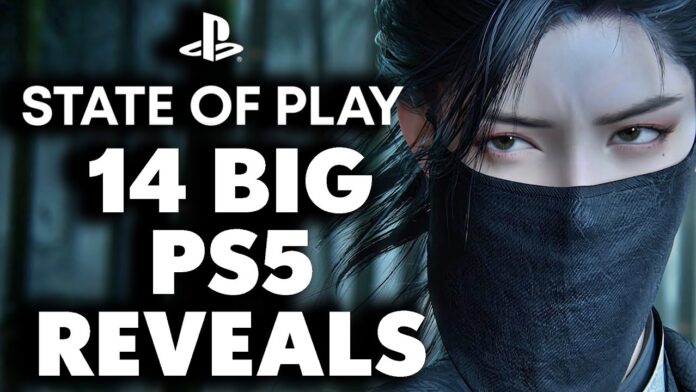State of Play reveals lacklustre first-party lineup, sparking disappointment among VR enthusiasts as Silent Hill transmission highlights upcoming titles
This week, the gaming community’s focus shifted to the start of the June hype cycle, previously known as E3, now a collection of various events and announcement livestreams. PlayStation initiated the excitement with its latest State of Play broadcast, which has left some fans, particularly those in the VR community, feeling disappointed.
The State of Play revealed a look ahead at PlayStation’s first-party plans for the remainder of 2024. This includes a moderately enhanced port of “Until Dawn,” an online shooter titled “Concord,” and the charming “Astro Bot.” However, as noted by Eurogamer’s Ian, even including the cute robot character Astro Bot has not placated some VR enthusiasts. Originally a VR title, “Astro Bot” will now be available as a flat-screen game, leading to concerns among VR fans about the perceived shift away from virtual reality experiences. Despite this, it is likely that more people will now engage with the game in its new format.
In addition to PlayStation’s announcements, the Silent Hill Transmission offered a longer look at the highly anticipated “Silent Hill 2” remake. It provided Konami a platform to promote various tie-in merchandise. The broadcast focused primarily on showcasing the upcoming game, which fans of the series have eagerly awaited.
Joining the discussion on Eurogamer’s Newscast, Editor-in-Chief Tom Phillips and Eurogamer’s Victoria Kennedy and Vikki Blake delved into the details of these announcements and the overall sentiment within the gaming community. The team analyzed the impact of PlayStation’s State of Play and the Silent Hill Transmission, highlighting the mixed reactions from fans.
The announcement of “Until Dawn” being re-released in a slightly improved version sparked a sense of déjà vu among some gamers. While the original title was well-received, the updated version did not generate the excitement many hoped for. “Concord,” the new online shooter, also faced a lukewarm reception, with critics questioning whether it would stand out in the crowded market of online multiplayer games.
Astro Bot, a beloved character from PlayStation’s VR lineup, transitioning to a flat-screen game, stirred the most significant response. VR fans expressed their disappointment on various forums, feeling that the move symbolized a step back for PlayStation’s commitment to virtual reality. However, some argue that the change might attract a broader audience to the game, potentially increasing its popularity and success.
The Silent Hill Transmission, on the other hand, kept fans of the horror series on edge. The focus on “Silent Hill 2” provided a detailed look at the remake, building anticipation for its release. Konami’s promotion of additional tie-in products, however, felt excessive to some, who were more interested in game-related news than merchandise.
This year’s not-E3 hype cycle has started with a blend of excitement and disappointment. PlayStation’s announcements have sparked debates about the direction of its first-party games and commitment to VR. The Silent Hill Transmission, while delivering on game previews, also highlighted the industry’s increasing focus on monetizing popular franchises through merchandise.
As the June hype cycle continues, gamers eagerly await further announcements and presentations from other major players in the industry. The initial response to the PlayStation’s State of Play and the Silent Hill Transmission serves as a reminder of the high expectations and critical nature of the gaming community. Future announcements will need to address these concerns and deliver compelling content to maintain enthusiasm.
Analysis:
The reactions to PlayStation’s State of Play and the Silent Hill Transmission reveal several important aspects of the current gaming landscape. From a political perspective, the decisions made by major gaming companies reflect broader industry trends and strategies. PlayStation’s apparent shift away from VR and towards more traditional gaming experiences suggests a strategic move to appeal to a wider audience. This could be influenced by market research indicating higher profitability in non-VR titles.
Sociologically, the disappointment among VR fans highlights the strong community and sense of identity within niche gaming markets. VR enthusiasts have invested in the technology and built a culture around immersive experiences. PlayStation’s move to reframe a beloved VR title as a flat-screen game can feel like a betrayal to these dedicated fans. It underscores the importance of understanding and respecting subcultures within the broader gaming community.
Economically, the decisions made by PlayStation and Konami reflect a balance between innovation and financial stability. The re-release of “Until Dawn” in a slightly enhanced version is a safe bet, leveraging an existing fan base with minimal development costs. Similarly, Konami’s focus on merchandise for “Silent Hill” represents a strategy to maximize revenue from a popular franchise. These moves are financially sound but can sometimes lead to mixed reactions from consumers seeking new and innovative content.
Locally, the impact of these announcements can vary. For instance, game developers and studios based in regions with a strong focus on VR technology may feel the ripple effects of PlayStation’s decisions. If major players in the industry deprioritize VR, it could influence funding and development opportunities for smaller studios specializing in virtual reality.
From a gender and race perspective, the inclusivity of gaming content and the representation of diverse characters remain crucial. The announcements did not specifically address these issues, but ongoing discussions within the industry emphasize the need for diverse and inclusive gaming experiences. Ensuring that new titles and re-releases consider these aspects can enhance the appeal and relevance of games across different demographics.
In conclusion, the early stages of this year’s June hype cycle reflect a dynamic and evolving gaming industry. PlayStation’s and Konami’s announcements provide insight into current trends and strategies, highlighting the balance between meeting fan expectations and pursuing broader market opportunities. As the hype cycle continues, the industry will need to navigate these complex dynamics to maintain engagement and excitement among gamers.
